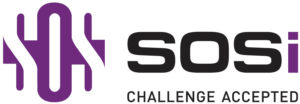
Pre-Conference Workshops
Pre-conference workshops are three-hour courses designed to help language professionals enhance their skills and knowledge on a particular topic.
Additional registration is required. Pre-conference workshops are available as an add-on item to the main conference or can be registered for individually.
Space is limited! All workshops will have limited seating to ensure an optimal learning experience.
Earn continuing education units (CEUs). All workshops will be submitted to receive continuing education credit. Review the conference CEU page for complete details.
SCHEDULE
EDUCATIONAL SESSIONS
SCHOLARSHIP PROGRAM
EXHIBITORS
SPONSORS
ADVERTISING
HOTEL
REGISTRATION INFORMATION
Friday, June 2nd: Morning Workshops
9:00 AM – NOON EDT
A minimum participant threshold is required for all pre-conference workshops. If a session you choose is cancelled, you will have the option of choosing an alternate session or a full refund. These sessions have limited capacity. Reserve your spot early!
CONSECUTIVE INTERPRETING SKILLS BUILDING *** SOLD OUT ***
Friday, June 2, 9:00 AM – NOON EDT
Presenter: Prof. Karen Borgenheimer
Language: Language Neutral
Level: All Levels
Attendee rates:
Early Bird Rate: $110 members, $150 non-members;
After April 17: $135 members, $175 non-members;
After May 22: $185 members, $225 non-members

Session Description: This 3-hour, language-neutral, skills-building workshop will help the professional interpreter and trainee improve his/her consecutive interpreting skills through hands-on, guided consecutive interpreting practice with: memory – visualization, notetaking, Proper register (formal and informal, as well as intonation and expression). Learning to combine these elements is challenging, but the end result is ACCURACY. Participants will polish these skills through intense practice with CI materials created from authentic legal proceedings in both the civil and criminal arenas. During the clinic, the instructor will employ the communicative teaching method, acting as a coach by challenging and guiding participants through a series of original practice materials aimed to reinforce CORRECT consecutive interpreting technique through a variety of lively exercises. Content: Approximately 30% lecture and 70% guided exercises. Exercises: Participants will “perform” a series of consecutive interpreting scripts designed to polish skills in both criminal and civil settings.
Objectives: Participants will learn tricks to improve memorization, visualization and notetaking through targeted exercises. Participants will improve accuracy through intense practice with original materials created from authentic court documents. Participants will polish CORRECT consecutive interpreting technique through a variety of lively exercises. Participants will leave this session feeling better equipped to sit for upcoming interpreting exams or their next interpreting gig..
Prof. Karen Borgenheimer, MFA, is a classically trained, certified interpreter and translator who is regarded as a skilled, insightful, and versatile professional who is equally comfortable in the classroom, courtroom, and international conferences where she has interpreted for heads of state, diplomats, the Department of Defense and Homeland Security and Fortune 500 companies. Her interpreter training workshops have been a huge success in the US and Spain. Over the past 20 years she has trained hundreds of certified interpreters and interpreters in training. Karen is the owner of the Florida based company, InterpreterTranslation.com, LLC. Karen obtained a Master of Fine Arts degree in Translation Studies from the University of Arkansas—Fayetteville. She also completed doctoral coursework in Spanish Language and Linguistics at the University of Wisconsin—Madison. Karen has been a university professor for 30 years and a T&I professor at Florida International University (Miami) for 20 years.
ANALYZE THIS: ANALYZE, PREPARE AND INTERPRET
Friday, June 2, 9:00 AM – NOON EDT
Presenters: Agustín Servín de la Mora and James Plunkett III
Language: Language Neutral
Level: All Levels
Attendee rates:
Early Bird Rate: $110 members, $150 non-members;
After April 17: $135 members, $175 non-members;
After May 22: $185 members, $225 non-members
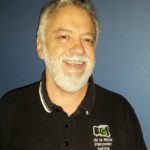

Session Description: Agustín de la Mora and James Plunkett present a highly interactive skill-building workshop for the simultaneous mode. Designed for basic to intermediate skill levels, participants in this workshop will learn to detect discourse patterns used in court proceedings. Narrative, descriptive, expository and argumentative discourse types are used in court all the time. By interpreting, recording and self-evaluating court proceedings using real court material, participants will gain a new way to approach their preparation for both simple and complex assignments. Participants must bring a recording device and headsets. This is a great chance to apply the interpreting theories that continue to make DE LA MORA Institute a nationally recognized name in interpreter education.
Participants must bring a recording device and headset.
Objectives: At the end of this training, participants will attain an enhanced level of understanding and processing of legal and lay speech in court settings, with which they will produce more accurate, complete, and faithful renditions in the simultaneous mode. To achieve the goal, participants will improve understanding of the speaker’s speech/discourse/message and purpose in a legal setting, analyze the quality of the message and the speaker’s intentions and learn three/four steps to analyze real, legal speech and prepare the translated rendition.
Agustín Servin de la Mora is the President of DE LA MORA Interpreter Training. He was born and raised in Mexico City, Mexico, and has been a professional interpreter for 30 years, both as a freelance and a staff interpreter. He is one of the supervisor raters for the National Center for State Courts and has been a lead rater for the federal and consortium oral exams for court interpreters. He was the lead interpreter for the Ninth Judicial Circuit for over a decade, and served as a member of the Project Advisory Committee responsible for the creation of the National Standards for Healthcare Interpreter Training Programs for the NCIHC. He was a member of the Florida Court Interpreter Certification Board and a voting member of the Technical Committee of the National Consortium for Interpreter Certification. He is a state and federally certified court interpreter, as well as a certified medical interpreter. He has been a consultant for the National Center for State Courts for 20 years.
James Plunkett III is a nationally-known interpreter instructor and trainer of trainers. He also trains new judges and court staff on how to work with court interpreters. He is certified by the AOUSC as a Spanish and English court interpreter. He is a rater for a national credentialing program for interpreters. He has worked as a court interpreter for the 13th Judicial Circuit in Florida and as the Coordinator of Interpreting Services and Language Access Program for the District of Columbia Courts. He is staff interpreter of the U.S. District Court, based in Tampa, FL. He holds a BA degree in General Social Studies from Providence College. He was raised in Lima, Peru. He also communicates in Portuguese, some French and basic Mandarin.
COMPLEX DEPOSITIONS, DOMESTIC AND ABROAD, BOOTHCAMP-STYLE WORKSHOP [SPANISH, ETHICS]
Friday, June 2, 9:00 AM – NOON EDT
Presenters: Tony Rosado
Language: Spanish
Level: Advanced
Attendee rates:
Early Bird Rate: $110 members, $150 non-members;
After April 17: $135 members, $175 non-members;
After May 22: $185 members, $225 non-members
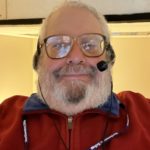
Session Description: This “booth camp style” workshop will cover all aspects of a complex deposition heard in the United States or abroad through practical exercises in small groups. We will look at general principles such as preparation, credentials, and competitive advantages over other interpreters, to the analysis of all stages of a deposition, its best practices and work conditions. There will be advanced exercises based on a case study provided by the presenter, including complex legal and technical situations, communication with foreign attorneys and high-profile deponents. We will learn the differences between in-person, distance, and hybrid depositions, team interpreting, check interpreters, legal objections, and many other concepts and situations. By the end of the workshop all participants will be full of knowledge, armed with strategies to enter the world of Fortune 500 companies, and escape from the world of car and labor injury small claims depositions. This workshop will be in Spanish for advanced interpreters and those ready for a good challenge.
Objectives: Those interpreters attending this advanced workshop will learn how to properly prepare for a high-profile, complex deposition, that could involve International Law, by understanding the purpose, importance, and mechanics of a deposition, how to communicate with the client and other participants, how and what to interpret, researching and learning the facts, the parties, and the litigants and expert witnesses’ backgrounds. The presenter will discuss this process step by step, and then all participants will work in small groups, interpreting and reviewing an exercise based on a case study provided by the instructor. After the workshop, participants will assess on their own their current skills and identify what they need to do to improve, in order to provide the service top lawyers expect from a successful interpreter. Every interpreter attending the workshop will leave a better professional.
Tony Rosado is a conference and court/legal interpreter with over 35 years of experience in interpreting all over the world. An attorney from Escuela Libre de Derecho in Mexico City, he has worked internationally as a conference interpreter, and has interpreted for high profile conferences, court proceedings, sports events, and TV broadcasts, including presidential debates and political conventions. He has worked with many top-level politicians, celebrities, athletes, and entrepreneurs. The author of two books on court interpreting, he is a visiting professor at various universities in the U.S. and overseas. He is also a well-known conference presenter, a United States Department of State independent contractor at the conference-level, a court interpreter certified by the Administrative Office of the U.S. Courts and several States, as well as the current chair of AIIC-USA Regional Bureau, chair of the Ethics Committee of IAPTI, and the author of the popular blog, The Professional Interpreter.
REMOVAL PROCEEDINGS... A WORLD APART [Sponsored by SOSi]
Friday, June 2, 9:00 AM – NOON EDT
Presenters: Francesca Samuel and Marilyn Lovo
Language: Language Neutral
Level: All Levels
Attendee rates:
Early Bird Rate: $110 members, $150 non-members;
After April 17: $135 members, $175 non-members;
After May 22: $185 members, $225 non-members


Session Description: This lively presentation includes immigration court terminology as well as information regarding the different immigration court hearing settings, for example, cancellation of removal, adjustments, asylum, voluntary departure, removal vs. deportation, citizenship claims, etc., and an advocacy component to this is the company’s experience in advocating for equal justice and how the interpreter helps to make a legal right a reality by facilitating immigrants as they access and navigate our justice system, overcome barriers, and access justice. We will look at the different scenarios, the role of EOIR (Executive Office of Immigration Review), the interpreter’s role in this environment, and how it differs from other judicial circuits compared to Federal and State interpreter requirements, court protocol, etc. Additionally, we’ll explore language differences or similarities of standard legal terminology vs. immigration jargon and the importance of cultural awareness in translation. The session will also include information about some of the dos and don’ts associated with the preparation and translation of documents for purposes of immigration. Participants will receive information regarding monolingual (English) and bilingual (Spa<>Eng) glossaries of terms associated with immigration as well as a list of the definitions of the different sections of the law for EOIR (Executive Office of Immigration Review).
Francesca Samuel is a freelance interpreter/translator and founder and president of A la Carte Translations, a web-based translation business. She has been a member of NAJIT and ATA since 1999. Francesca is a Pima College Translation and Interpreting Program graduate with 22+ years of experience as an immigration court contract interpreter and approximately 30 years of experience as a translator. Francesca is an avid volunteer and passionate about the profession. She has presented on immigration, business management, scam prevention, and social media at annual FIT, NAJIT, CFI, ATA, and ATI conferences. She served as administrator of the Spanish Language Division of the American Translators Assoc. from 2012-2016 and president of Arizona Translators and Interpreters (ATI) during the same period. Currently, Francesca serves on several committees and boards, which include president of Arizona Translators and Interpreters, chair of the Hospitality/Public Relations committee and member of the Professional Development of the ATA Spanish Division, chair of the Training and Education committee of NAJIT, co-chair of the conference planning committee and member of its Social Media committee.
Marilyn Lovo is a national expert on language access. She is a Senior Language Access Manager at Ayuda, a nonprofit organization that provides legal, social, and language access services to low-income immigrants in the DC Metropolitan area. She supervises a team of Coordinators responsible for administering publicly funded interpreter banks, ensuring that nonprofits in the District and surrounding jurisdictions can serve all clients, regardless of the languages they use to communicate. She recruits and selects interpreters to work in community, legal, and victim services settings. She designs, coordinates, and delivers training for professionals on best practices regarding interpretating, language access, and using Ayuda’s interpreter banks. She arranges interpretation and translation for 100 nonprofit organizations throughout Washington, DC, Maryland, and Virginia. Marilyn has nearly nine years of experience in the language access field, advocating for limited-English and Deaf and Hard of Hearing clients, and has delivered presentations at numerous local and national conferences.
WORDFAST PRO FOR BEGINNERS
Friday, June 2, 9:00 AM – NOON EDT
Presenters: John Di Rico
Language: Language Neutral
Level: Beginner
Attendee rates:
Early Bird Rate: $110 members, $150 non-members;
After April 17: $135 members, $175 non-members;
After May 22: $185 members, $225 non-members

Session Description: This training will be devoted to setting up and using the general features of Wordfast Pro. A workflow approach from translation quoting to delivery will be used, and practical exercises will focus on creating and using glossaries and translation memories, including converting PDF files so they can be imported and translated with Wordfast. Time permitting, we’ll learn how to create a translation memory from past translations using the Wordfast alignment tools.
NOTE: Participants will be contacted prior to the workshop with workshop primer instructions. This will help you download the software, practice with it a bit, and be ready to go when you arrive at the workshop! Registered attendees will receive a 25% discount to purchase a license.
Objectives: By the end of this workshop, attendees will be able to use Wordfast Pro to create a translation project; create a translation memory (TM); create a glossary; import TMs and glossaries; analyze a file; translate, edit, and proofread PDF and Microsoft Word documents; integrate machine translation; perform an automated quality control assessment; and create a translation memory using an alignment tool.
John Di Rico began translating in 2005 and specializes in legal, financial, and marketing translation from French to English. He currently works as the Sales and Marketing Manager for Wordfast and runs a small translation business—ApexTra—in France. He is a sworn translator and interpreter for the French courts (traducteur-interprète assermenté), member of the French translation professional association (Société Française des Traducteurs). He has an MA in Translation and Localization Management from the Middlebury Institute of International Studies at Monterey (MIIS). John is a certified trainer for adult education and has been offering professional training for translators since 2006. He has taught more than 600 translators how to use CAT tools, how to manage their time, and how to manage translation projects. John is currently teaching project management for the online Master in Technical Communication and Localization (TCLoc) and Master in Multilingual Web Communication programs at the University of Strasbourg.
Friday, June 2nd: Afternoon Workshops
2:00 PM – 5:00 PM EDT
A minimum participant threshold is required for all pre-conference workshops. If a session you choose is cancelled, you will have the option of choosing an alternate session or a full refund. These sessions have limited capacity. Reserve your spot early!
SIMUL IS SIMUL. OR IS IT? [ETHICS]
Friday, June 3, 2:00 PM – 5:00 PM EDT
Presenter: Katty Kauffman
Language: Language Neutral
Level: Advanced
Attendee rates:
Early Bird Rate: $110 members, $150 non-members;
After April 17: $135 members, $175 non-members;
After May 22: $185 members, $225 non-members

Session Description: As court interpreters we often work in the simultaneous mode. But do our skills in that mode translate smoothly into other settings? In this hands-on session, we’ll discuss the practical and ethical considerations involved in working in the simultaneous mode in legal settings, seminars and conferences and practice the skills needed to succeed in those unique contexts. In addition, as a group we’ll address the question of quality and how listener perception may influence and inform our performance in settings beyond the legal realm. In break-out groups, we’ll look at real-life scenarios and discuss best practices. Through practical exercises, participants will hone their simultaneous skill set and ability to adjust and adapt to different circumstances and expectations.
Participants will need to bring an internet-equipped device (cell phone or computer) to access audio, and compatible earbuds or headphones (preferably noise cancelling).
Objectives: Participants will learn to differentiate between the different contexts in which simultaneous interpreting is used (court, seminar, conference, etc.), the unique skill set required for each, and the ethical and practical considerations involved in deciding which assignments to accept. Attendees will gain an understanding of the nuances involved in each setting and how those impact expectations for interpreter performance through practical, hands-on exercises and group discussion.
Katty Kauffman is a seasoned conference and court interpreter, a member of the International Association of Conference Interpreters (AIIC) and TAALS and an instructor at York University’s graduate school (Glendon MCI). Trained in Chile and the United States, her extensive conference experience includes presidential summits, general assemblies of international organizations, and countless events for the private sector. She regularly provides services in person and online to the U.S. Department of State, the OAS and ECLAC, among others. In the judicial field, in addition to her work as a freelancer in New York, Miami and the Washington, DC metro area, she has served on staff at the U.S. District Court for the Southern District of Florida.
SETTING AND LEVERAGING INTERNATIONAL STANDARDS FOR COURT INTERPRETING
Friday, June 2, 2:00 PM – 5:00 PM EDT
Presenters: Aimee Benavides and Christopher Mellinger, PhD.
Language: Language Neutral
Level: All Levels
Attendee rates:
Early Bird Rate: $110 members, $150 non-members;
After April 17: $135 members, $175 non-members;
After May 22: $185 members, $225 non-members
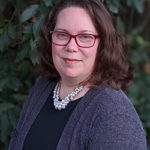
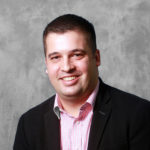
Session Description: Professional organizations play a key role in developing best practices and standards in language services provided in legal settings. White papers, standards of practice, and codes of ethics are shaped by members of these groups, and they are often cited as key references in courts when issues arise. In addition, international standards such as ASTM and ISO standards have been developed via consensus-building with a range of stakeholders in an effort to guide decision makers and address broad questions of working conditions, professional conduct, and best practices. These standards extend beyond the courtroom into other legal settings, enabling more interpreters to benefit from their use.
This presentation provides an overview of international standards on translation and interpreting, focusing specifically on ASTM standards and their applicability to interpreting in court and in legal contexts. The presentation describes the overarching process of developing international standards, articulates how these standards can be used by court interpreters and administrators to support the provision of language access, and identifies ways in which standards can bolster initiatives related to the quality of language services. Suggestions are provided on how interpreters can leverage international standards to enhance the profession.
Objectives: By the end of the session, participants will be able to identify key international standards related to best practices in language services and describe their scope and applicability to court interpreting. They will be able to outline the process of developing international standards, identify key stakeholders, describe their relationship to codes of ethics and white papers, and implement standards in their daily work as court interpreters. Finally, they will learn how to access key standards relevant to their professional activities in legal settings.
Aimee Benavides is a federally certified and California court certified Spanish interpreter with over 20 years of experience. She is a former chair of NAJIT, having served on the board from 2017–2022. In addition to having worked extensively in court, she specializes in technical agricultural conferences and training workshops, focus groups that require simultaneous interpreting into English and educational interpreting. She is currently the co-chair of the executive committee for ASTM F43 Language Products and Services and helped to draft the recent revision to the interpreting standard. She is currently leading the drafting committee on a standard guide for remote interpreting. She has presented various webinars and educational sessions independently, for NAJIT, ATA, as well as for TerpSummit in January 2023.
Christopher D. Mellinger is an associate professor of Spanish Interpreting and Translation Studies at the University of North Carolina at Charlotte. Dr. Mellinger received his Ph.D. in Translation Studies and M.A. in Translation (Spanish) from Kent State University. He also holds certificates in Spanish-English interpreting as well as translation and localization management from Wake Forest University. He is the co-editor of the journal, Translation and Interpreting Studies (John Benjamins), co-editor of Translating Texts: An Introductory Coursebook on Translation (Routledge, 2020), and co-author of Quantitative Research Methods in Translation and Interpreting Studies. He has been involved in ASTM to revise the language interpreting standard (F2089) and is collaborating on a proposal for a new standard on remote interpreting.
CONSEJOS DE PALABRAS MAYORES
Friday, June 2, 2:00 PM – 5:00 PM EDT
Presenters: Antonio Martín, Alberto Gómez-Font, Xosé Castro Roig
Language: Spanish
Level: All Levels
Attendee rates:
Early Bird Rate: $110 members, $150 non-members;
After April 17: $135 members, $175 non-members;
After May 22: $185 members, $225 non-members

Session Description: The session will be in Spanish, but doubts and questions can be answered in English. The three (of the four) members of the group Palabras Mayores offer you three sessions. The first one, in charge of the philologist Alberto Gómez Font, will deal with what is considered “correct Spanish”, in order to know which manuals and resources can be used to solve doubts. The second, by the translator Xosé Castro, will discover digital resources to increase the productivity of the interpreter’s daily work. And the last one, by the communicator Antonio Martín, will present the methodology of clear language in legal and administrative texts, to offer a useful resource in daily work and a new job option.
Objectives: Above all, attendees will learn how to resolve Spanish language doubts more quickly, easily, safely and efficiently. Secondly, they will be able to acquire the digital skills to solve problems related to specialized terminology, as well as other resources that will help them to increase their productivity, and therefore, be more competitive. And finally, they will learn the techniques of clear language, both to use them in their daily work, as well as to value them as another job skill to offer to their customers.
Since 1989, Xosé Castro Roig has been working as a freelance English translator and proofreader. He has participated as coordinator, translator or proofreader in dozens of software translations. He has translated and adapted advertising material, multimedia and educational videos for the U.S. Hispanic population and for the Spanish-speaking market in general. He has also translated a large number of series and movies for film and television, both for dubbing and subtitling, especially for the European market. He is an advisor to the Centro Virtual Cervantes of the Instituto Cervantes and an active member of the ATA and Asetrad. He was co-editor of the glossary of computer terms in the style guide of the newspaper El País; he is the creator and moderator of TRAG, the largest discussion list for Spanish-speaking audiovisual translators, and is a member of the editorial board of Panacea, the medical language magazine.
Albert Gómez-Font is a former director of the Instituto Cervantes in Rabat (Morocco) and was General Coordinator of the Fundación del Español Urgente (Fundéu) until 2012. He was also a corresponding member of the North American Academy of the Spanish Language and a stylist in the Department of Urgent Spanish of the Agencia EFE (Madrid) from its foundation in 1980 until its transformation into Fundéu BBVA in 2005. He has been a professor, since 1990, for the courses of modernization of administrative language, organized by the Ministry of Public Administration (MAP) of Spain. He is a professor, since 2001, in the “Agency Journalism” master’s degree courses organized by the EFE Agency. He is also the author of more than 20 books related to the use of language, the creator of the Apuntes forum and an organizer and participant in many international congresses on language.
Antonio Martín graduated in Hispanic Philology at UCM. In 1997 he founded CÁLAMO&CRAN, the center for professional applications of language and publishing. He is a member of the quartet PALABRAS MAYORES, a member of the editorial committee of ARCHILETRAS, and one of the organizers of the ENCLARO meetings. He is co-author of El libro rojo de C&C (C&C, Madrid, 2013), 199 recetas infalibles para expresarse bien (Vox, Barcelona, 2015), Dilo bien y dilo claro (Larousse, Barcelona, 2017), and author of La mano invisible (CSIC, Madrid, 2019). He has directed the PUBLISHNEWS media since 2015, a daily reference in the Spanish publishing world. From 2005 to 2015 he chaired the professional association of proofreaders that he founded, UniCo. In 2018 he contributed to the creation of the first professional association of proofreaders in the United States, SEA. In 2007 he was recognized as an honorary member of La Casa del Corrector, of the Litterae Foundation. In June 2022 he was appointed PLAIN’s ambassador in Spain.
THE POETRY OF LEGAL LANGUAGE
Friday, June 2, 2:00 PM – 5:00 PM EDT
Presenters: Janis Palma
Language: Language Neutral
Level: Advanced
Attendee rates:
Early Bird Rate: $110 members, $150 non-members;
After April 17: $135 members, $175 non-members;
After May 22: $185 members, $225 non-members

Session Description: We often think of legal language as frozen and unyielding, difficult to decipher and even more difficult to find proper equivalent concepts in other languages. During this workshop, participants will learn how to use a different lens to look at legal language: the lens of rhetorical devices. We will analyze how metaphors, alliterations, metonymy and other figures of speech form an integral part of legal discourse, and in so doing sharpen those analytical skills normally applied to extract meaning from everything heard inside and outside of a courtroom. Looking at the poetic side of legal language will help participants enhance their critical thinking skills and their overall performance.
Objectives: At the end of this workshop participants will be able to recognize the most common rhetorical devices found in legal discourse. They will learn how to analyze figurative language in legal contexts, how to differentiate and extrapolate layers of meaning and, within this pragmatic context, apply interpreting strategies that make it easier for them to understand legal discourse in U.S. courtrooms and easier to convey its meaning in a foreign language.
Janis Palma is an English-Spanish interpreter and translator, certified by the federal courts in 1981, certified by NAJIT as an interpreter and translator in 2004, and licensed by the State of Texas as a master court interpreter as of 2017. She holds a B.A. from the University of Texas at Austin and an M.A. from the Centro de Estudios Avanzados de Puerto y el Caribe in San Juan. She is a NAJIT Life Member since 2006, was a Board Member between 2020 and 2022, and chair of the board for the 2021-22 term. Ms. Palma has been teaching and training judiciary interpreters since 1986 and has written extensively on subjects related to judiciary interpreting. She is now working towards a master’s in Legal Studies (MLS) at Arizona State University.
TIPS AND TRICKS FOR ACCENT REDUCTION
Friday, June 2, 2:00 PM – 5:00 PM EDT
Presenters: Nora Díaz
Language: Language Neutral
Level: All Levels
Attendee rates:
Early Bird Rate: $110 members, $150 non-members;
After April 17: $135 members, $175 non-members;
After May 22: $185 members, $225 non-members
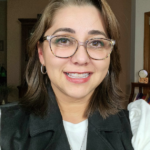
Session Description: How can non-native English speakers improve their accent? Simple observation and imitation is not enough, but an understanding of basic English phonetics and phonology principles go a long way to enhance both listening comprehension and speaking performance. This hands-on workshop combines theory and practice to help achieve accent reduction goals efficiently and systematically.
Objectives: In this workshop, attendees will learn and practice the basics of phonetics and phonology for accent reduction. The topics to be covered include the English vowel and consonant system, word and sentence stress, and their practical application for improved listening comprehension and speaking performance.
Nora Díaz is an English-Spanish translator and conference interpreter who enjoys using technology and finding ways to increase productivity, which combines with her love of teaching and has led her to share what she has learned through a blog, articles, webinars and workshops. Nora is a certified RWS trainer, currently serves on the board of the Organización Mexicana de Traductores and is the chair of the American Translators Association Professional Development Committee. She is also one of the co-organizers of the Innovation in Translation Summit and the Innovation in Interpreting Summit. She has recently co-authored a book called The Translator’s Tool Box.
COURT TOUR
Friday, June 2, 1:00 PM – 4:30 PM PDT
Court Address: Lloyd D. George Federal Building, 333 Las Vegas Blvd. South, Las Vegas, NV. 89101
Meet: 1:00 PM at the conference registration desk
Tour Time: 2:00 PM to 4:00 PM
Ticket Cost = $20
Session Description: Attendees will enjoy a 2-hour tour of the Lloyd D. George Federal Building located eight miles away from the conference hotel. Attendees will be treated to a conversation with a local judge. This tour is limited to 15 attendees. NAJIT will provide transportation to and from the conference hotel, provided attendees meet at the designated area. Instructions will be emailed to attendees before the conference. Please allow a minimum of 3-hours for the tour and travel time.

